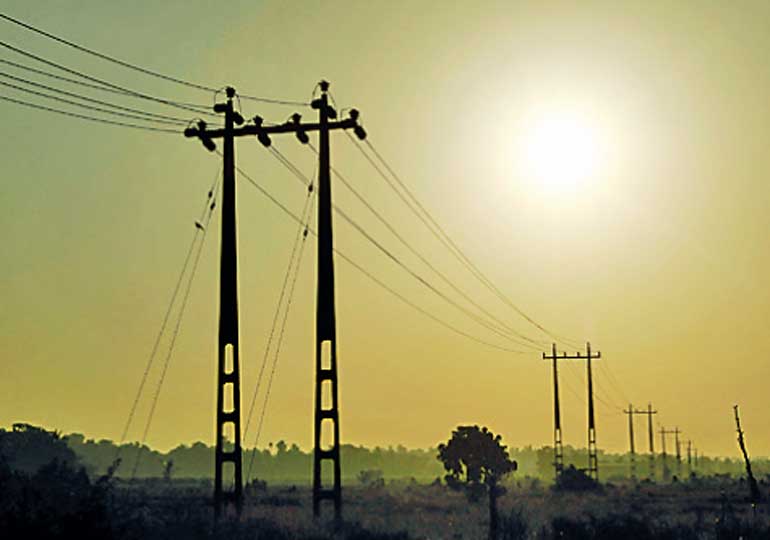Saturday Feb 14, 2026
Saturday Feb 14, 2026
Friday, 21 July 2017 00:00 - - {{hitsCtrl.values.hits}}

By Chathuri Dissanayake
The Public Utilities Commission of Sri Lanka yesterday approved a long-term generation plan for 2018-2027 sans coal, following adjustments made to proposals submitted by the Ceylon Electricity Board to reflect the cost for externalities.
The approved plans focus more on diesel with liquefied natural gas (LNG) plants and renewable energy.
“We will have to rely on diesel plants to meet the demand as they require the least time to set up,” PUCSL Director General Damitha Kumarasinghe told journalists yesterday.
The plan submitted by the CEB, which featured new coal plants, was rejected by the PUCSL as the cost was higher than the base year after adjustments for externalities were made. To base externality costs, the PUCSL used costs from a European study selecting the lowest cost scenario as there were no local studies available. One of the optional plans submitted by the CEB which featured LNG and renewable generation plants was assessed to be more suitable by comparison.
“We had to adjust the prices to reflect current scenarios better. The CEB had taken two-year average market prices of 2015/2016 for fuel cost estimates. The coal prices considered in the long-term generation plan is clearly below the current price levels, while LNG prices given by the CEB were much higher than the current prices,” Kumarasinghe stressed.
According to PUCSL, the CEB has relied on two-year (2015 and 2016) average market prices for fuel cost estimates. Usage of such a long-term (2015 and 2016) average was considered a misrepresentation by the PUCCSL “when the current prices are substantially different”. The notes on the decision released by the PUCSL also add “most notably, they have used the existing market prices for oil products (which is with taxes, etc. and excessively higher than the border prices).”
Accordingly, in the plan presented by the CEB, coal was priced at $ 54, with an additional $ 15 for logistics, LNG at $ 7.5 per British Thermal Unit and $ 2.5 for logistics and $ 88.6 for furnace oil. Following adjustments done by the PUCSL, fuel was coal was priced at $ 81 per MT which included an unloading cost of $ 14.82 from Lanka Coal Ltd. and $ 8.4 per MMBtu including a $ 2.5 charge for logistics for LNG while the fuel price was adjusted to $ 46.5.
Following adjustments, the base case with CEB proposed fuel prices, which were at PV cost $ 11,877 million, was revised to $ 10,900 million. The cost with externalities based on CEB fuel prices was $ 15,068 million which was revised to $ 13,961 million after 2016’s average fuel prices. The proposal with no further coal development was valued at $ 12,422 million at CEB fuel prices. The same proposal was then revised to $ 10,645 million after price adjustments for fuel.
According to PUCSL the “revised case contains only Gas Turbine and NG plants as future thermal plant additions, since coal with a pumped storage hydro plant combination results in a higher Present Value.”
Accordingly, PUCSL has approved 242 MW of major hydro, 215 MW of mini hydro, 1,389 MW of solar, 1,205 MW of wind, 85 MW of biomass, 4,800 MW of natural gas, 330 MW of furnace oil-based power and 105 MW of gas turbine power to be added to the electricity generation system in a 20-year period.